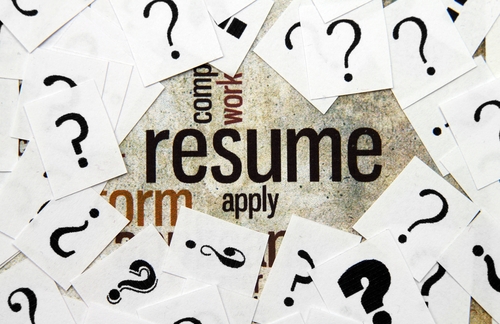 If you fear that you won’t be able to find a job if you major in history, you might be surprised to learn just how many different jobs you could get with a history degree. The list of possible careers for history majors is “almost endless,” according to the American Historical Association. Some of these careers, like a historian, are related to the program of study. Other potential careers put the research, communication and information management skills you learn studying history to work in other fields. Here’s a look at how people who majored in history get history degree jobs.
If you fear that you won’t be able to find a job if you major in history, you might be surprised to learn just how many different jobs you could get with a history degree. The list of possible careers for history majors is “almost endless,” according to the American Historical Association. Some of these careers, like a historian, are related to the program of study. Other potential careers put the research, communication and information management skills you learn studying history to work in other fields. Here’s a look at how people who majored in history get history degree jobs.
Characteristics of the History Major
According to Psychology Today, for all the individual differences that history majors have, they also have some common characteristics. These characteristics make them good at studying history. Most history majors love facts. They have been likened by Psychology Today as a “dog on a bone,” always:
- sniffing around historical documents
- searching through artifacts
- interpreting data
They possess an almost insatiable curiosity about the world. That curiosity not only opens the ancient world up to them but to others who benefit from their work. History majors also tend to look up facts for themselves. They don’t take another person’s word that something is true. They want to know for sure that what they learned about a time in history is true. Additionally, history majors can put what they know about history into the proper context. They know what the events of history meant during the time those events took place. They additionally know what role those events continue to play in the world today. Finally, they believe it’s important to be the keeper of history. They remember the past and teach others to do the same. From their study of history, they learn about ethics. They learn the consequences of good and bad decisions that people throughout history have made.
Entry-Level Jobs for History Majors
While many history majors wish to parlay their degree into careers as historians, not all history majors go this route. Many find that their degree trained them for several jobs outside of the history field. This isn’t surprising. History majors graduate with some important skill sets. These include the ability to write and research, and the ability to place historical facts in context. They also learn important communication and critical-thinking skills. According to Southern New Hampshire University, these skills allow former history majors to become journalists and news analysts. Still, other history majors turn their love of history and writing into novel writing or TV careers. Additionally, many history majors work in seemingly unrelated fields, like IT. Both Susan Wojcicki, the CEO of YouTube, and Carly Fiorina, former CEO of Hewlett-Packard, majored in history. Part of what makes history such a good major for these professionals is that the study of history enables them to grapple with the ethical issues that may come up during their careers.
Careers Managing Historical Research
Several of the jobs you could get with a history degree are closely related to historical research and information management. A historian is primarily a social science career. Historians are researchers who analyze and interpret artifacts from the past to make meaningful discoveries about history. In research roles, historians may find work in environments such as:
- museums
- historic sites
- historical organizations
Historical researchers also work in historic preservation or cultural resources management departments or organizations. Some historians do research for think tanks to help in the analysis of policy issues. Many trained historians also become museum curators. In this line of work, the historian creates historical exhibits in museums and interpretive centers. The type of history that the person studied plays a role in the type of museum or interpretive center the historian works in. For example, a theater historian might curate an exhibit of costumes that actors wore during the Elizabethan period. A historian who delved into war history might assemble an exhibit of a particular war using:
- war uniforms
- weapons
- historical documents
These jobs may additionally require them to write exhibit proposals and to gather artifacts for an exhibit they’re planning. Their duties may require them to record and catalog historical objects as well. When the exhibit is finally ready to be introduced to the public, museum historians may also write the marketing materials for an exhibit. This puts them in the role of an information officer. Other related history degree jobs allow former history majors to become archivists or records managers for:
- historical societies
- interpretive centers
- museums
Those who have a background in historical research often land jobs as librarians. Primarily, these historians concentrate on conveying messages about the history and curating historical artifacts. Many become public information officers in the museum or interpretive center setting. In this way, they make history much more accessible to the non-historian. The amount of money these historians make depends on their jobs. For example, according to the Bureau of Labor Statistics (BLS), librarians make almost $60,000 per year. Curators earn $53,590 per year. Public relations specialists earn just over $61,000 per year.
Teachers of History
 In this capacity, historians-turned-librarians may also contribute to the field of education. Some history degree jobs may require the historian to write about history. Perhaps they create textbooks or educational programs. Other former history majors work as history teachers. Whether they work at the elementary, secondary or postsecondary levels depends on their levels of education. Those who wish to become university-level history teachers must usually complete a Ph.D. in history. Many of these instructors augment their studies by taking coursework in related subjects, like:
In this capacity, historians-turned-librarians may also contribute to the field of education. Some history degree jobs may require the historian to write about history. Perhaps they create textbooks or educational programs. Other former history majors work as history teachers. Whether they work at the elementary, secondary or postsecondary levels depends on their levels of education. Those who wish to become university-level history teachers must usually complete a Ph.D. in history. Many of these instructors augment their studies by taking coursework in related subjects, like:
- archaeology
- paleontology
- art history
- book history
For example, the art historian who specializes in ancient Egyptian art may also study archaeology. His or her work could include a university professorship. In the summers, this historian may spend time in Egypt on archeological digs. The discoveries that this historian makes become the foundation for:
- scholarly books
- papers
- speaking engagements
BLS reports that history teachers make around $74,590 per year on average. Of those who get jobs in higher education, just over 15,000 of them work at:
- colleges
- professional schools
- universities
Almost 5,000 of them get jobs at community colleges.
Business, Communication and Advocacy Jobs for Historians
One of the great things about majoring in history is that you develop versatile abilities, like strong communication skills. You get an understanding of the development of institutions like the legal system and the business world. There are many jobs you could get with a history degree that emphasize these skills. You could work in communication as a:
- writer
- journalist
- creator of multimedia content
You can also use your communication skills to edit written content or video documentaries to make them clearer and more poignant.
In 2008, the National Center for Education Statistics reported 34,642 majors in history. In 2017, the most recent year for which data are available, the number was 24,266. American Historical Association
When you learn from the past, you’re in a strong position to advocate effectively for people and groups who need help. Often, history majors end up working in advocacy roles such as:
- lawyers
- paralegal
- litigation support
- legislative staff.
You may also work in more charitable advocacy settings, such as nonprofit foundations and associations. Even the business world needs candidates who are well-versed in history. Contract historians can find work in companies and consulting firms. Some corporations hire historians to aid in research and strategic planning.
How to Find History Degree Jobs
How history majors find jobs depends on the kind of job they hope to get. In other words, history majors who want to become college professors will look for jobs in different places than history majors who want to become journalists. In light of how broad this search can become, this section gives history majors an overview of the places they may find jobs. For the history professor hopefuls, jobs in history begin at the university level. They usually major in history or a related subject at the undergraduate level. They then go on to get a master’s degree and then a Ph.D. in history. At the master’s level, they often get the opportunity to teach lower-level history classes. This gives them the teaching experience they need to move into university-level teaching jobs. It also gives them the experience they need to teach history on the high school or junior high levels. After that, they often find jobs on job sites, like Higher Ed Jobs or by word of mouth. Those who aspire to museum jobs can look at museum job sites. Those who wish to get jobs outside of the traditional history jobs will want to make a list of the transferable skills they learned as history majors. Important transferable skills include:
- critical thinking
- communication
- multitasking
- creativity
- teamwork
Once they know what skills they have, these history majors can then look on job sites for jobs in the industries they’d like to work in. On their resumes, they can highlight their transferable skills. It’s also important for all history majors to try and find internships while they’re in school. These positions provide them with job experience. They also give history majors the chance to network with potential employers. Students who want to find an internship have many options, according to an article on The Balance Careers. Many times a school’s academic departments keep job boards. Businesses and nonprofits that need interns post information about internships on these boards. Most colleges and universities also offer career counselors and career services offices for this purpose. It’s important for students to start searching for an internship fairly early on in the school year. Some organizations want to hire for a spring or summer internship by late fall (during the academic year). Many schools also offer career fairs throughout the year. Students who wish to secure internships can attend these functions to learn more about potential internships. History students can also take matters into their own hands by contacting employers they’d like to work for directly. This tactic may prove especially helpful for the history major who would like to secure a position in a historical museum or interpretive center. Many times these organizations need interns and even volunteers because they do numerous events throughout the year. Museums and interpretive centers need people who can work these events. Students who participate in these events prove their work ethic and put themselves in the line of sight of the organization’s higher ups. These events also attract businesspeople from the public sphere. History students who work the events have the opportunity to interact with these people, many of whom could be potential employers down the road. For the resourceful student, being a history major will help, not hurt, your career prospects. Start early to consider which of the jobs you could get with a history degree. Decide which of these most appeals to you. Then start preparing by working toward a relevant minor or seeking out related internship and volunteer opportunities. It’s also important for people looking for history degree jobs to consider careers both inside of and outside of the history field. Many history majors aspire to careers as:
- museum curators
- interpretive center curators
- librarians
But these jobs represent just a small number of jobs that the history major is qualified for. The study of history teaches students important skills, such as:
- research
- writing
- documentation
- critical thinking and more
As we’ve mentioned, some people who studied history, like former Hewlett-Packard CEO Carly Fiorina, went on to have successful careers outside of history. Many former history majors find jobs in journalism and the media equally appealing because these jobs tap into the very characteristics that make history majors who they are. On the whole, journalists and history majors are curious. They also wish to put events into the proper context, and they love facts. Finally, all of this isn’t to say that history majors shouldn’t look for jobs as historians. Those who do become historians spend their days digging into history’s mysteries. They research the historical artifacts they come across, looking for clues about the objects in question. From these clues, the historian learns to draw conclusions about what life in a bygone era was like. The requirements for these jobs may bring them to the university classroom one day and the banks of Egypt another. Truly, these history degree jobs are some of the most fascinating jobs a history major could ever find.
Related Resources:
- 30 Best History Degree Online Programs (Bachelor’s)
- In What Ways Can a History Major Provide Litigation Support?
- What is the Best Degree for Becoming a High School History Teacher?
- What Skills Do I Need to Succeed in the Study of History?
- What Specializations are there For History Majors?
- 15 Creative Jobs for History Majors
- 5 Fascinating Careers in Travel for History Majors
- 5 High Paying Careers for Someone with a History Degree
- 5 Ways a History Degree Can Help You in the Field of Media Communications
- Can a History Major Study Ancient History?
